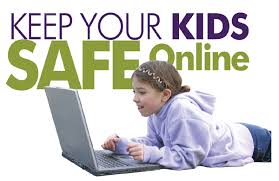
The occurrence of Covid-19 has brought about the need for children to engage more with the internet and the various social media platforms.
It has brought a shift in the norms, putting more activities, including their education, online.
Online activities have acquired a new meaning and reality to Nigerian parents and children. Screen time and screen activities are the new normal. Parents are constantly searching for online learning platforms, TV stations are providing more child-based educational content and schools are teaching via Zoom, Google Classroom, and YouTube.
Given this reality parents now have to contend with the overwhelming and scary possibility of a child being hurt by faceless individuals while surfing the internet, and a perceived inability and incapability to protect the child.
This has compelled all stakeholders, parents, caregivers, governments, and industry players, to actively pursue, create, and promote a safe online environment for children.
To mitigate the new challenges the Nigerian Communications Commission (NCC) has provided online safety tips for parents, caregivers, and children.

Relying on the Global Online Safety Advice for parents and Carers and the International Telecommunication Union ( ITU) Keeping Children SafeOnline during the Covid-19 Pandemic, NCC said child, online abuse is being exacerbated by the COVID-19 pandemic and countries are developing measures to address and provide significant assurance of online safety for children, their families, and society at large.
Online safety, NCC argues is not the non-existence of harm or risk, rather it is creating the atmosphere or opportunity to overcome the risks while enjoying the inherent benefits of using the internet.
According to the telecom regulator, the first step to providing online safety for your children is to anticipate risks, which will lead to appropriate control measures being put in place before a child is allowed access to digital devices or the internet. NCC says parents need to, stay informed and educated about the use of their devices and the devices their child has access to; the various social network sites, and what happens on them.

They need to make their children understand that they know as much or more than they do and therefore be their go-to person for information on what to do with the device you eventually give them access to.
Caregivers should be trained on how to guide children in online activities and teachers educated and prepare for the avalanche of questions from children, on the use of various online applications or whatever information the children encounter online.
Parents, NCC counsels, should install child-appropriate apps/search engines and applications before they give such a device their children as it will protect the child from inadvertently stumbling into wrong sites that appear as pop-ups.
Parents should install a firewall, to act as content filters, making sure non-age appropriate content does not appear on the child’s device.
The Commission also said in the advisory that parents should also set timers on all devices used by the child, as this helps to create discipline and structure for the child; ensure clear time boundaries are set.
As children spend more time online, observe behavioral patterns and changes. Recognize unusual activities, actions, and reactions.
Where any change is observed, calmly address those changes and allow the child sufficient room to talk without being judgmental.
The home is a safety net for children. It is also the best support system that allows an abused child to recover from abuse and provides a means for managing post abuse trauma.
Ask how your children use the internet. Make them show you some of their favorite sites and discuss with them, make them aware that there are things on the internet that may upset them, and that they can always talk to you or any trusted adult.
If your child is using online platforms or programs for schoolwork, ensure a healthy balance between non-school related online activities and offline time.
During non-school hours at home, establish time limits around when and for how long your child can be online.
Use the available technologies — parental controls and tools to monitor online time allow you to measure and set time limits on device use or internet access. Be honest and open about why you want to use these technologies.
Make sure your child realizes that he or she should never give out personal details, such as name, address, school, and telephone numbers, to online friends they do not know in the real world.









